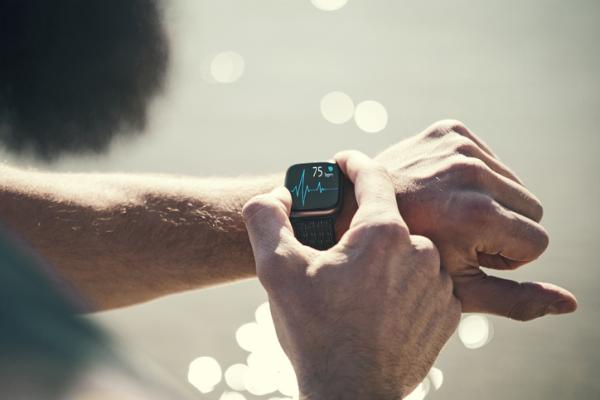
Image credit: Getty Images
March 25, 2022 – Consumers are increasingly using smartwatches and other wearable devices to measure their heart rate and rhythm during exercise and for overall health monitoring. However, those measurements may be less accurate in people with darker skin tones, according to a study presented at the American College of Cardiology’s 71st Annual Scientific Session.
The findings are based on a systematic review of 10 previously published studies involving a total of 469 participants. The study is the first to pool data from multiple studies to specifically examine how skin tone may affect the accuracy of heart data in wearables.
“People need to be aware that there are some limitations for people with darker skin tones when using these devices, and the results should be taken with a grain of salt,” said Daniel Koerber, MD, resident physician at the University of Alberta in Edmonton, Canada, and the study’s co-lead author. “Algorithms are often developed in homogeneous white populations, which may lead to results that are not as generalizable as we would like. Ongoing research and development of these devices should emphasize the inclusion of populations of all skin tones so that the developed algorithms can best accommodate for variations in innate skin light absorption.”
After screening 622 scientific papers, the researchers identified 10 studies that reported heart rate and rhythm data for consumer wearable technology according to a participant’s race or skin tone. Of those studies, four found that heart rate measurements were significantly less accurate in darker-skinned individuals compared with either lighter-skinned individuals or measurements from validated devices, such as chest strap monitors or electrocardiograms. One study reported that although there was no difference in heart rate accuracy, wearable devices recorded significantly fewer data points for people with darker skin.
Most wearables detect heart rate and rhythm by aiming a beam of light at the wrist and then detecting how much light is absorbed. Greater light absorption indicates a greater volume of blood flowing through the veins under the skin. The study results suggest that this signaling process might not work as well in darker skin that contains more melanin, which absorbs light.
In addition to the rising use of wearables to monitor physical activity and sleep patterns, interest in the use of consumer wearables for medical research and even early detection of heart problems has increased in recent years.
“There are a lot of claims that these devices can detect heart rhythm issues like tachycardia, bradycardia and even atrial fibrillation,” Koerber said. “We want to be able to inform health care providers about whether these are reliable sources for collecting data in all patients, regardless of skin tone.”
The study underscores the importance of ensuring technology meets the needs of diverse populations, especially when it is intended to improve health. Koerber said recent studies have reported that other devices, such as pulse oximeters used to measure the amount of oxygen in the blood, also do not perform as well for individuals with darker skin tones, which can lead to serious health consequences if problems go undetected.
“It is important to explore alternative options to make sure we can create a more equitable solution in health care and not just in the consumer industry,” Koerber said. For example, there is some evidence to suggest that certain wavelengths of light, particularly green light, are more accurate in people across all skin tones, he said.
As a systematic review, the research was limited by the relatively small number of relevant published studies as well as the variability in the populations, devices and outcomes assessed in different studies.
For more information on wearable technology and your heart health, visit cardiosmart.org/topics/wearable-technology.
Koerber will present the study, “The Effect of Skin Tone on Accuracy of Heart Rate Measurement in Wearable Devices: A Systematic Review,” on Sunday, April 3, at 11:45 a.m. ET / 15:45 UTC in Poster Hall, Hall C.
ACC.22 will take place April 2-4, 2022, in Washington, DC, bringing together cardiologists and cardiovascular specialists from around the world to share the newest discoveries in treatment and prevention.
For more information: www.acc.org
Related Wearable ECG Monitoring Content:
How Advances in Wearable Cardiac Monitors Improve the Patient and Clinician Experience
Cardea Solo Wearable ECG Collects High-altitude Cardiac Data on Denali Expedition
Cardiac Insight Partners With VivoSense for Cardiovascular Research
Wearable Cardiac Monitors Are Effective for Tracking Atrial Fibrillation Following Ablation
As Interpretation Criteria Evolve, False Positive Athlete ECG Screening Rates Can Decrease


 July 31, 2024
July 31, 2024 









